Education
EdTech Entrepreneurs: Reasons You Should Apply for Injini’s Cohort 4
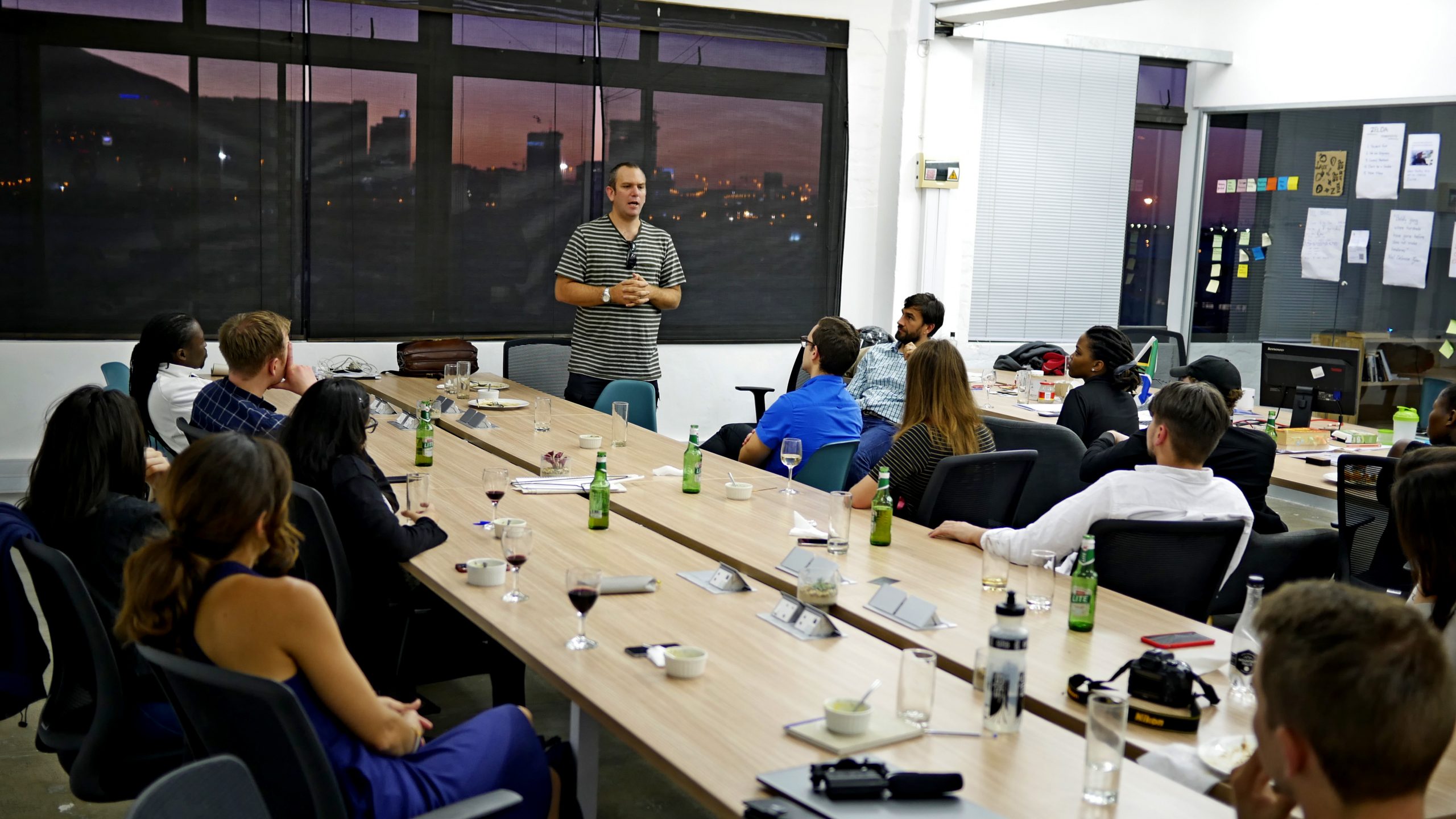
Do you have a technology-driven or technology-enabled innovation that could improve educational outcomes in Africa? Are you looking to take your early-stage startup to the next level?
Injini is now accepting applications for our next cohort of EdTech changemakers in Africa. If you are one of the selected Cohort 4 startups, you will participate in a five-month incubation programme that will take place both in Cape Town, South Africa and in your home market, where the team will support you remotely.
During this time, you’ll get an opportunity to work with subject matter experts in education, business, technology and entrepreneurship. But that’s not all, just for participating in the programme, you’ll receive a grant of R100,000 to spend on your business. Finally, if we’re impressed with your performance and trajectory once you’ve joined our alumni startups, Injini may offer an investment of up to R1 million for equity in your business!
Applications for Cohort 4 are now open! Click HERE and apply today!
Injini: Africa’s First EdTech Incubator
Injini is the first educational technology (EdTech) incubator or accelerator on the African continent. Based in South Africa, Injini invests in promising African EdTech startups and works closely with them to ultimately achieve their goal of positively impacting educational outcomes on the continent. The Injini incubation and investment programme was officially launched in August 2017 and has involved incubating and investing in the most promising early-stage startups from Africa and holding ecosystem development events across the continent to encourage broader innovation and evidence-driven EdTech solutions.
Injini has already incubated 24 EdTech startups from eight different African countries, including South Africa, Zimbabwe, Kenya, Tanzania, South Sudan, Ethiopia, Zambia, and Nigeria. Injini has extensive reach on the African continent and has received over 1,200 applications from startups from more than 35 African countries. The team has also run ecosystem building activities in Ghana, Ivory Coast, Kenya, Nigeria, South Africa, Tanzania, Zimbabwe, Rwanda, Uganda, Ethiopia, Botswana, Namibia and Zambia.
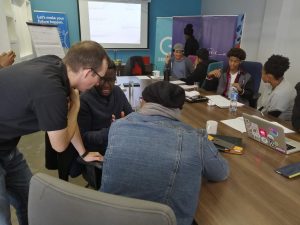

More about the Cohort 4 Incubation Programme:
The Cohort 4 Incubation Programme will be made up of three phases.
Phase 1 is set to begin in mid-March 2020 and will take place in Cape Town, South Africa. 1–2 decision-making members of your startup’s founding team will join us for an expenses-paid* stay in the Mother City for a period of six weeks. You’ll be expected to attend a number of business training workshops, engage with industry experts in 1:1 sessions and build a relationship with your mentor, who will support you through the duration of the programme.
Phase 2 will begin the moment you leave Cape Town and head back to your home market. During this 12-week period, you’ll be expected to apply the learnings from Phase 1 to your business on-the-ground, while the Injini team supports you remotely — we may even pop in to visit some of you on your home turf!
Phase 3 will commence back in Cape Town in July 2020, marking the final leg of the incubation programme. This four-week stretch will give us the chance to tie up loose ends and make sure your EdTech startup is ready for post-programme growth and possible investment.
* Injini covers the cost of international and domestic return flights to Cape Town, accommodation for the duration of Phase 1 and 2 and extends basic living stipends to subsidise the higher cost of living in Cape Town compared to other African cities. These expenses are only covered for founders who are not already based in Cape Town. All entrepreneurs are expected to cover their own food and in-country transportation costs, although Injini will occasionally sponsor group meals and social events.
Injini is looking for EdTech startups that meet the following criteria to join us for our Cohort 4 programme:
- Your EdTech startup is based in Africa and focused on improving educational outcomes somewhere on the continent.
- Your solution is aiming to address a key problem related to education in Africa.
- Your solution is evidence-based — meaning, you can point to research that backs up your methods or hypothesis.
- Your company is registered and a certificate of incorporation can be shared with the Injini team upon request.
- Your startup has (at least) a minimum viable product or prototype.
- Your startup has (at least) one full-time founder.
- One or more decision-making members of your startup’s founding team are able to travel to Cape Town during Phases 1 and 3 of the incubation programme.
- Participating founders from outside of South Africa must have a valid passport and eligibility to apply for a South African visa.
- Participating founders must be fluent in English.
Applications for Cohort 4 are now open! Click HERE and apply today!
The Application Process
- First-round applications opened on Monday, 14 October 2019 and will remain open until 10 December 2019. We will be reviewing applications on a rolling basis, so it is in your best interest to apply early— promising applicants will be invited to participate in the second-round application process.
- If we’re impressed by your first-round application, we’ll ask you to record a 2-minute video pitch and to complete another form that will dive a bit deeper into your solution, giving you the chance to convince us that you’re the best pick for Cohort 4. Note:the earlier you submit your first-round application, the more time you give yourself to complete the second-round process (if selected), which will close on 5 January 2020.
- From this point, we’ll select our top 20 applicants and schedule remote interviews between each founder and the Injini team. These calls will take place between 13–24 January 2020.
- Finally, we’ll invite the top 12 applicants to pitch to a panel of judges at the end of January 2020 in Cape Town (either remotely or in-person) to compete for entry into Injini’s Cohort 4.
At Injini, we believe African innovation will help to solve our continent’s most dire challenges in education. We can’t wait to read your application and, hopefully, welcome you to Cohort 4!
Testimonials
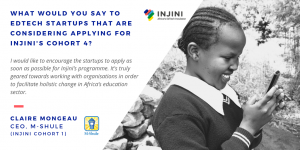
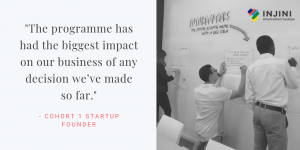
Don’t risk missing out on the latest news about Cohort 4 applications — sign up for our mailing list on our website.
Education
BAO Exclusive with Dr. Musa Akinyemi, Rector of Crown Maritime Academy
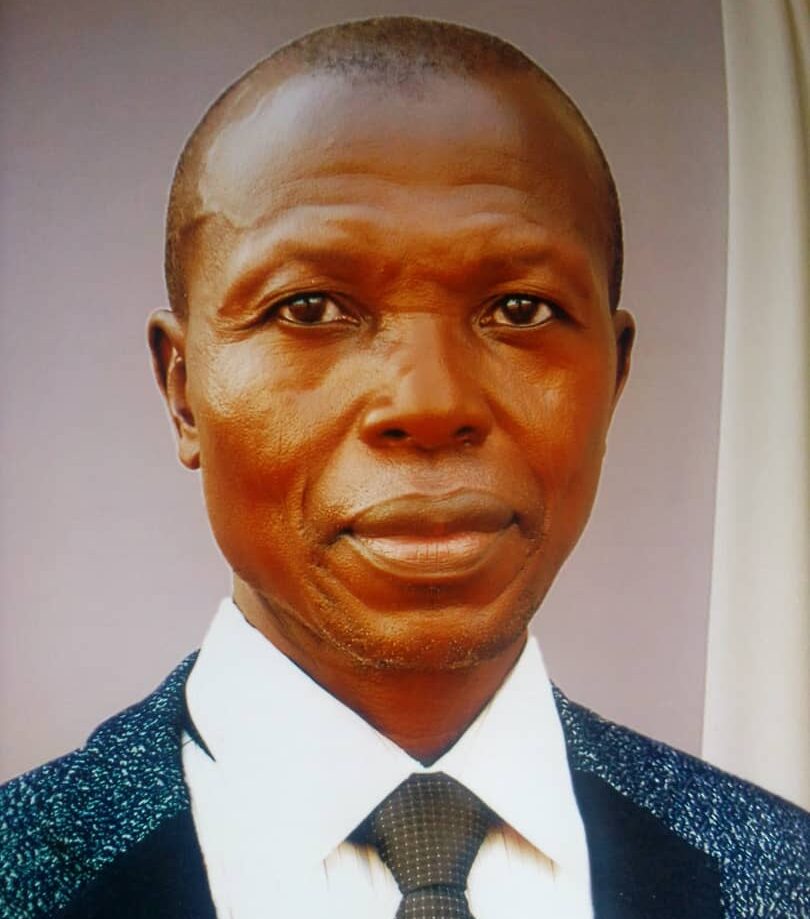
Dr. Musa Akinyemi is an experienced Rector with a demonstrated history of working in the maritime industry. He is currently the Rector/CEO of Crown Maritime Academy, CMA a go-to maritime training institution. In this interview with Alaba Ayinuola of Business Africa Online (BAO), Dr. Musa shares more insights on the maritime training institution, its certifications, milestones and much more. Excerpt.
Alaba: Could please tell us about Crown Maritime Academy and your role?
Dr. Musa: Crown Maritime Academy, CMA was muted as an experiment in 2011. That was 10 years after my return from exile in Cote d’Ivoire having suffered insecurity as Gen. Sani Abacha deprived me of my Federal Government employment without any reason in 1996. Between 2011 and 2014, just within 3 years of existence, the Academy was recognized as a Centre of Academic Excellence by the Commonwealth in London and Listed in the 2014/2015 Edition of the Commonwealth Education Ministers Publication. In addition, Crown Maritime Academy, CMA was also featured Online by the Commonwealth Education Partnerships (CEP) of London.
My role from the onset was strategically collapsed between Lecturing and Administering. Thus, I chose to be addressed with the status of Registrar. Yet, I had to decide and also design courses to offer as well as which curriculum to evolve or develop. Therefore, I added the CEO title, even as Registrar. That made me search for a seasoned and very resourceful postgraduate fellow who became the Rector.
Alaba: What sets Crown Maritime Academy apart from other Maritime Academy and how is it positioned to be the go-to institution?
Dr. Musa: This Academy has been set apart uniquely, abinitio, because we envisioned and delivered an Academy with a qualitative, affordable and available platform capable of achieving pan-Africanism, especially the African youth emancipation.
Already, we have commanded progressive credibility and stable camaraderie with fellow academies and universities locally and in the diaspora. It is expected that continuity, creativity and just-in-time delivery of our programmes would position Crown Maritime Academy, CMA as a go-to maritime training institution.
Alaba: Please tell us about the certifications offered, accreditation and opportunities that come after completion?
Dr. Musa: The Academy started with Diploma award for 2 years programme, at the end of which, after some 1 year practice in the industry, awardees could return to do the Advanced Diploma. Indeed, it was a sound and recommendable beginning. What we are doing now is to fully blend with the Federal Ministry of Education’s regulatory framework so as to start the National Innovative Diploma (NID) or National Diploma (ND) in our own name.
Many of our graduates are already engaged in the military, para-military, port operations and the like, while a few others have set-up their own businesses.
Alaba: Can you highlights some of your significant milestones and challenges?
Dr. Musa: Crown Maritime Academy, CMA is at the forefront of sustainable maritime education and training in Nigeria. In 2021, our senior management team was specifically selected and sponsored to conduct a Facility Tour of the Federal Government-owned Maritime Academy of Nigeria (MAN) at Oron, Akwa Ibom State. The only private maritime training institution in Nigeria to be so recognized.
Don’t forget also that we produced the Best-Graduated Shipping Management Student in Nigeria in 2017/2018. In 2018/2019, we repeated the academic feat by also producing the Best-Graduated Shipping Management Student in Nigeria. We are equally among those leading in Transport and Logistics Management, as we produced the Best-Graduated in this specialization in Nigeria in the 2020/2021 session.
Meanwhile, our challenges remain, namely, the harsh and unsupported maritime domain plus the capital intensive nature of providing tertiary education.
Alaba: What is your overall assessment of the entire situation of Nigerian maritime training and capacity building?
Dr. Musa: We are still operating at 50 % capacity. Most sincerely though, if not for the resuscitation of the MAN Oron by the current Rector, Rtd. Commodore Effedua, the capacity could have been far lower.
So, let it be known that with the MAN Oron bouncing-back, the Federal Government would get the graduating cadets the much-needed training vessels and, as a matter of urgency, float an ocean-going fleet to employ them. Of course, training should, from this achievement, become a life-long development.
Alaba: What are CMA priorities/plans for the year and where do you see the academy in the next 5 years?
Dr. Musa: Our current priorities include moving to our permanent site as well as to smoothly and successfully partner with the Federal authorities in respect of educational qualifications, regulations, standards, control and compliance.
I am very confident that foreign students would regularly seek admission and come to study at Crown Maritime Academy, CMA in Nigeria.
Alaba: Your advice for students and professionals in or aspiring to go into the maritime sector?
Dr. Musa: The first advice from me is that they should not fail to understand the importance of triple “T” or T raised to power 3. The first T is Time, they should not be looking for how to cut corners or abuse the process. Let them give all the time needed to study! The second T is for Talent. This means that they should not come empty and go back empty, they should be loaded with effervescent intellectual deposits!! Finally, the third T, which stands for Trust. This is to say that you can not excel and sustain the lucrative life of a shipping professional if colleagues and the stakeholders can not trust you.
Education
The Space Prize Foundation and UNESCO partners to propel Space Education across Africa

The Space Prize Foundation announces the launch of its partnership with UNESCO, aimed at democratizing access to space education and inspiring a new generation of female scientists and engineers in Africa. Despite sixty years of space exploration, women are grossly underrepresented in the space industry, making this initiative potentially transformative on the educational landscape and, ultimately, the future of space exploration.
Starting in Rwanda, this visionary partnership will unfold over the next several months as both organizations meticulously plan the framework for the implementation of the Space Prize Foundation’s Space Education Curriculum. The initiative is designed to equip teachers across Africa with the tools and resources they need to empower young minds, particularly young women, to pursue careers in scientific and engineering fields. The open source curriculum is the first of its kind and was developed by leading science teachers across the United States of America.
Key elements of this initiative include:
Survey for Teacher Development: The Space Prize Foundation will conduct a comprehensive survey to identify the specific needs and levels of development required by teachers. The survey will delve into teaching styles, current practices in space education, and the resources available to educators.
Workshops for Curriculum Implementation and Teacher Empowerment: UNESCO and the Rwanda National Commission for UNESCO will identify participating teachers. The first workshop will provide participating teachers with an introduction to the Space Education Curriculum. A leading expert in space education will guide teachers in customizing the curriculum for their students and schools. The second workshop will be dedicated to Q&A, ensuring teachers have time to digest the curriculum.
Curriculum Reception: Following the initial workshops, teachers will be encouraged to present the tailored curriculum to their students at least twice a month. Feedback from this implementation will be reviewed in two 90-minute workshops to discuss the curriculum’s reception.
Structured Roll-out in Q2 2024: The formal launch of the curriculum is scheduled for Q2 2024, during which the Space Prize Foundation, UNESCO and participating teachers will design the cadence of classes and schedule monthly review sessions. This flexible approach aims to cater to the unique needs and capacities of different educational settings.
Impact Assessment: UNESCO will design an impact survey to measure the effectiveness of the Space Education Curriculum.
By commencing this journey in Rwanda, the Space Prize Foundation and UNESCO are laying the groundwork for a transformative educational initiative that will resonate across the continent. This partnership embodies a commitment to fostering the next generation of space enthusiasts, driving innovation, and building a brighter future for humanity.
Education
Ubongo Celebrates 10 Years of Transforming Education in Africa

Ubongo, Africa’s leading children’s edutainment and media company, is excited to announce its 10-year anniversary, marking a decade of transforming education and empowering millions of children across the continent. With an impressive portfolio of educational programs including Akili and Me, Ubongo Kids, and the recent addition of the captivating new show Nuzo and Namia, Ubongo continues to set the standard in innovative learning experiences for kids.
Since its founding in July of 2013 in Dar es Salaam, Tanzania, Ubongo has been dedicated to providing fun, localized, and multi-platform educational content that helps children foster a lifelong love of learning. Through accessible technologies like TV, radio, and mobile phones, Ubongo has reached over 32 million families across Africa, making a significant impact on the continent’s education landscape. Independent research studies examining Ubongo’s programs have consistently revealed their profound impact, enhancing school readiness, improving learning outcomes, and fostering positive social and behavioral change among both children and their caregivers.
Over the past 10 years, Ubongo has grown from a small Tanzanian grassroots startup to a Pan-African non-profit organization and the market leader in African edutainment. Ubongo’s innovative and engaging edutainment programs empower kids with the knowledge and critical skills they need to change their lives and their communities for the better.
“We are thrilled to celebrate this incredible milestone of 10 years,” said Mwasi Wilmore, CEO of Ubongo. “It is a testament to the hard work, dedication, and passion of our team, partners, and supporters who have believed in our mission and contributed to our success. Together, we have made a significant impact on education in Africa, and we are committed to continuing our journey of transforming learning for generations to come.”
In commemoration of this significant milestone, Ubongo has arranged a special 10-year anniversary event in Dar es Salaam to celebrate the accomplishments and milestones achieved throughout the years. The event will feature inspiring speeches and captivating presentations showcasing the journey and impact of Ubongo’s edutainment programs.
“We invite all our partners, supporters, and stakeholders to join us in celebrating this significant milestone,” added Mwasi Wilmore. “Together, let us reflect on our journey, express our gratitude, and renew our commitment to providing quality education and transformative learning experiences for children in Africa.”
“As we look ahead to the next decade, we remain steadfast in our mission to reach even more children, leveraging the power of edutainment to unlock their potential and shape a brighter future for Africa,” added Mwasi Wilmore.
-

 Afripreneur3 days ago
Afripreneur3 days agoMeet Datari Ladejo, the digital strategist helping brands thrive in the digital economy
-

 Afripreneur10 hours ago
Afripreneur10 hours agoCreativity, Data, and Innovation: Tutu Adetunmbi’s Vision for Africa’s Marketing Future with Stamfordham
-
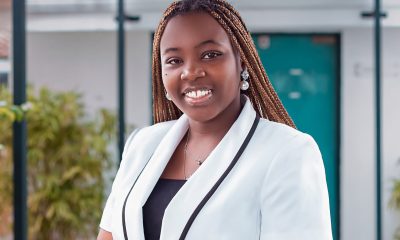
 Press Release1 day ago
Press Release1 day agoThe 234 Venture Vault Launches Tech Startups and Talents Hunt Across Nigerian Tertiary Institutions
-

 Afripreneur9 hours ago
Afripreneur9 hours agoMeet Nzinga B. Mboup, a Senegalese architect committed to climate-friendly construction for African cities

















